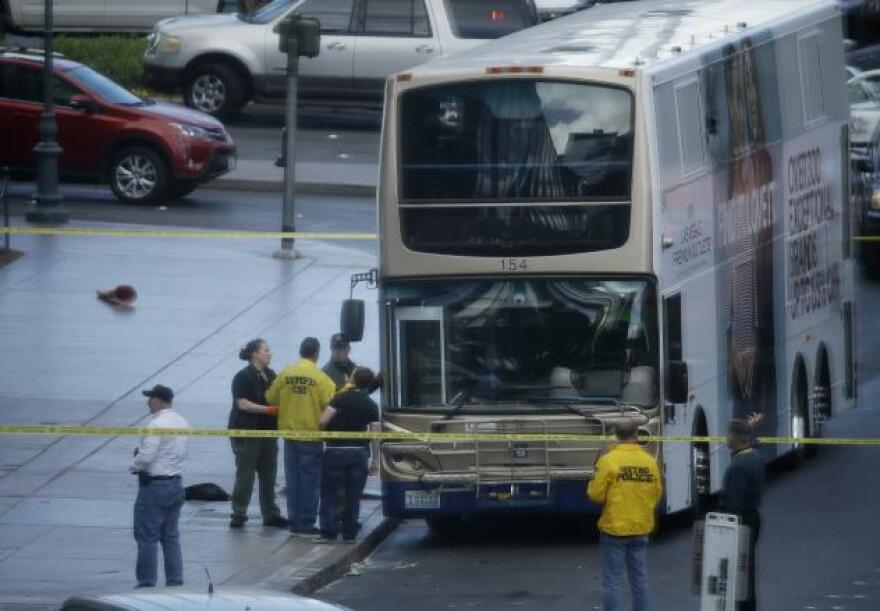Less than a month ago, a tourist was shot and killed on a public bus on the Strip.
Police were held at bay for hours because wrap-around advertising on the bus kept them from seeing inside.
The man suspected of the deadly shooting was arrested but police and transit authorities are now working on a plan to connect video cameras inside the buses to the Internet to give them real-time video of all 400 public buses in southern Nevada.
Tina Quigley, general manager of the Regional Transportation Commission of Southern Nevada, said the change could happen quickly. Buses are already installed with video and wireless internet, they just had not been connected before.
“At this point, it’s just a matter of connecting those cameras to the routers and then establishing some security protocols, putting in measures so that Metro would have access to it,” she told KNPR's State of Nevada.
While this standoff is the only one that has happened on an RTC bus, Quigley believes having the cameras available for Metro's use is important.
“As the number of riders and the number of visitors that we have along the resort corridor increases, it just makes sense to add that extra layer of security and to allow Metro the ability to manage situations when they arise,” she said.
Adjusting the cameras to allow access to Metro should cost in the thousands of dollars, according to Quigley.
Tina Quigley, general manager, Regional Transportation Commission of Southern Nevada










